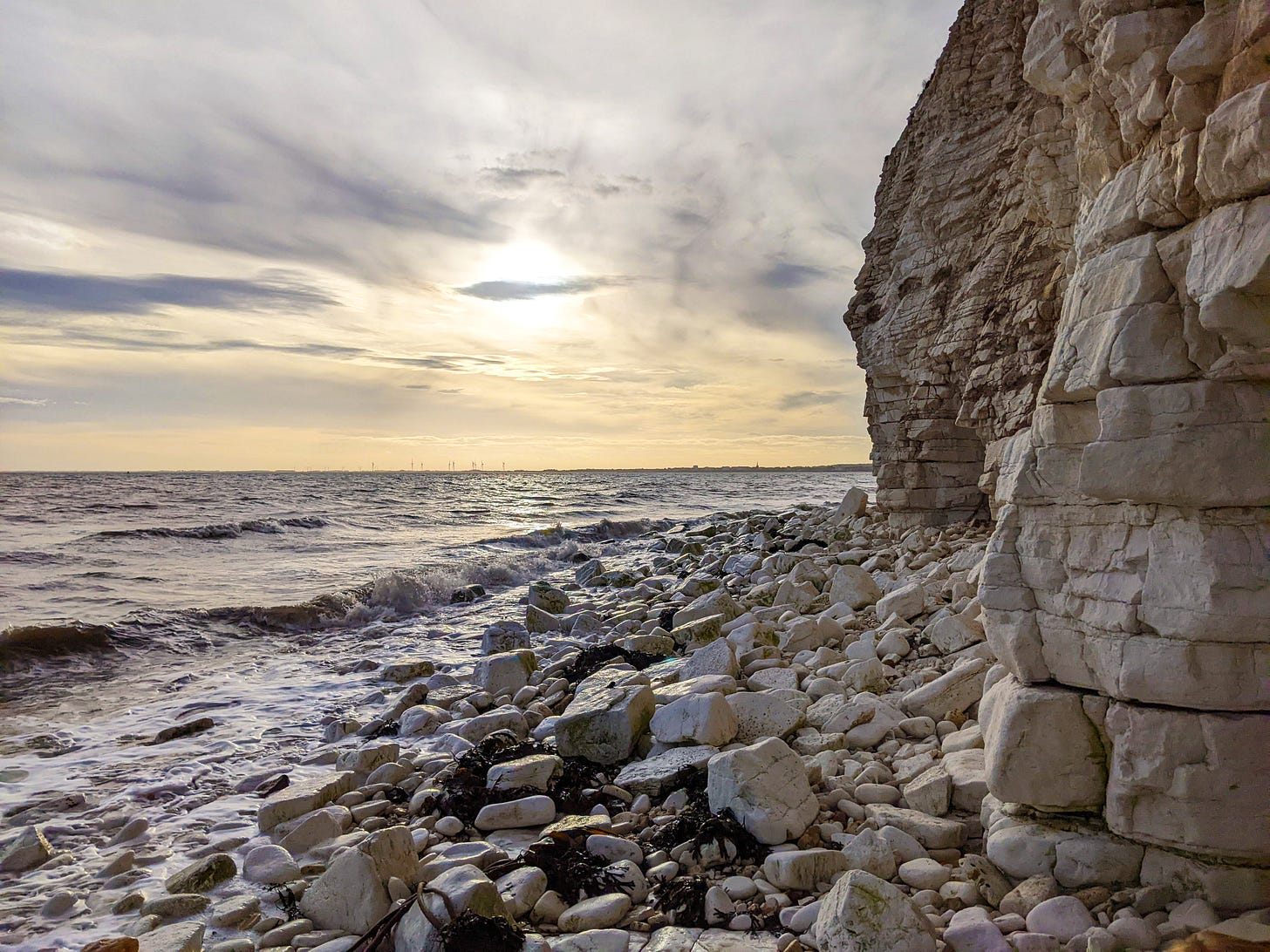
I once congratulated a veteran poetry publisher on one of their authors being up for an award. Their response was: “Ah yes, prizes! The oases of success in the desert of poetry publishing.” (We love a good metaphor in this industry.)
I wouldn't go quite that far, personally – I’ve always taken great pleasure in the little victories of publishing, and just as well, as they kept me going for over a decade. All the same, reading the longlists of poetry prizes every year and seeing our titles not featured (having dutifully entered every single one) has never quite lost its sting. I was bracing myself for perhaps the most painful omission so far this week, as I awaited news of whether Emma Must’s powerful, brilliant collection The Ballad of Yellow Wednesday would be longlisted for the 2023 Laurel Prize.
Seeking the best collections of nature or environmental poetry published in English worldwide, the Laurel Prize is championed by our current Poet Laureate Simon Armitage, who donates his £5,000 annual ‘honorarium’ to the winner. It’s operated by the wonderful Poetry School, and partly funded by the Yorkshire Sculpture Park (among other excellent trusts and foundations). 2020 winner Pascale Petit is judging this year’s prize, along with Reeta Chakrabarti from BBC News and poet Nick Laird.
As for Emma Must, she is, to quote David Morley, “a guiding star of environmental activism and one of the most gifted poets of her generation”. She was awarded the Goldman Environmental Prize in 1995 for her campaigns to protect heritage sites from destruction (including a spell in Holloway Prison), and her organisation is credited by the Guardian as having “kickstarted a major shift in green attitudes in both government and the public”. Her Valley Press collection is named after the infamous day yellow-clad security guards brutally evicted protestors at Twyford Down, and was published on its thirtieth anniversary.
Twyford Down was a site of considerable natural beauty and archaeological importance in southern England, and although it was ultimately bulldozed to make way for a motorway extension, those protests ignited a wave of grassroots campaigning across the UK which led to the cancellation of over 500 similar projects. I suppose it stands as an example of “losing the battle but winning the war” – though of course the wider war for our environment is still only just beginning. The Ballad of Yellow Wednesday arrived into a world where its story is more relevant than ever, and I’m delighted that it will now be reaching an even wider readership . . .
. . . because (for those who didn’t read the title of this post!) Emma did make the Laurel longlist, and we now await the reveal of the shortlist at the end of August, and the overall winners at a prize ceremony on 22nd September. You can find the official announcement, and a list of the other nineteen longlisted poets, here. It’s a roll-call to make any poetry fan bow their head in hushed reverence; I never thought I’d find myself rooting against Sharon Olds in any circumstance, and yet here we are.
I asked Emma to share her own thoughts on this happy occasion, and she made an interesting connection I’d not thought of before:
I’m absolutely thrilled about the Laurel longlisting for The Ballad of Yellow Wednesday! I’m thrilled for everyone who tried to save Twyford Down thirty years ago, and more. I’m thrilled that it’ll mean more royalties going to the transport and climate campaigners of today. And I’m thrilled for Valley Press: for publisher Jamie McGarry; designer and typesetter Peter Barnfather; and my exceptional editor Kate Simpson. It has truly been a joy working with all of them on this book.
In 2021, when Kate first suggested approaching Valley Press about the possibility of publishing the manuscript, I felt a shiver down my spine – Valley Press. For this is a poetry collection about the creation of an unnatural valley. It is about the waves of people power unfurled when the state recklessly tries to act at odds with nature – turning a theoretically protected white chalk hill into a black tarmac-floored valley. I opened my Geological Map of the British Islands and saw the curving seam of chalk, in pale green ink, stretching from Twyford Down in Hampshire to Flamborough Head in Yorkshire – almost as far as Scarborough, where Valley Press are based. I knew the book had found its home. The land was giving its blessing.
Here’s my best photo from the chalk-strewn beach of Flamborough Head, about six hours’ walk from VP HQ. It’s quite the place if you ever get the chance to visit.
As Emma mentioned, her collection was brought to Valley Press by ‘Editor-at-Large’ Kate Simpson, who was also responsible for our 2021 anthology Out of Time, and more recently Simon Maddrell’s The Whole Island. Kate worked tirelessly, week after week, editing and then championing Yellow Wednesday, and both myself and Emma will be forever grateful for all her efforts. She is now a researcher at the University of Leeds’ Poetry Centre, exploring “the role of polytemporal poetics in reimagining deep time”, which I look forward to discussing with her one day (if only to find out what that means).
So, in closing, keep one eye on the blog to find out how we get on, and should you wish to purchase a copy of Emma’s collection (while stocks last!) you can do so in the Valley Press bookshop here, or anywhere else books are sold. Wish us luck!





